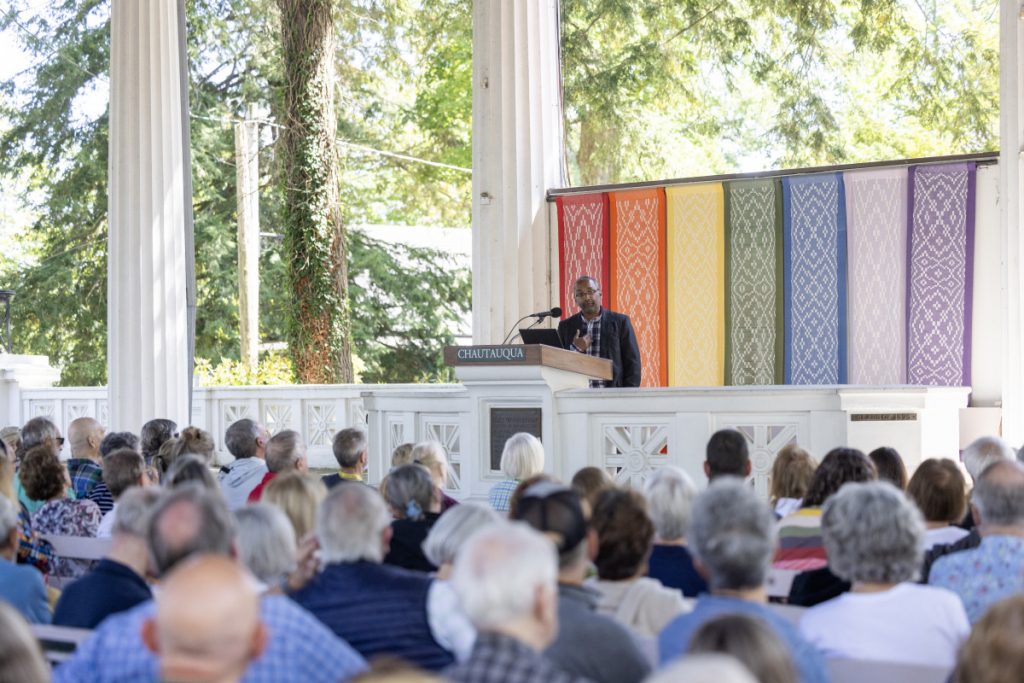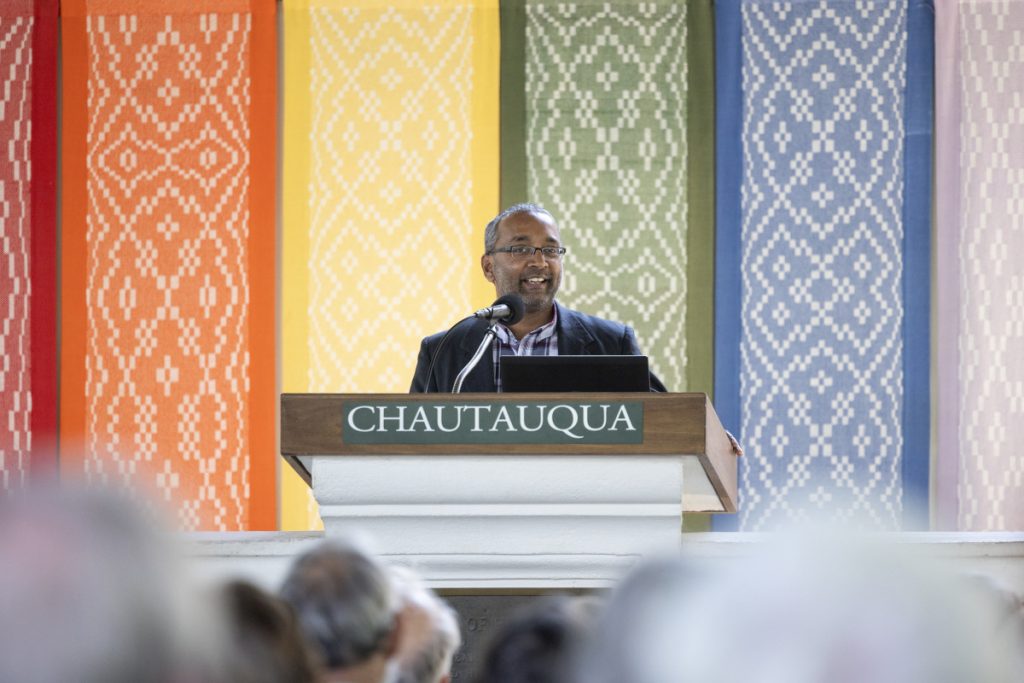
Natalie Hanson
guest writer
Devaka Premawardhana — author, cultural anthropologist, Emory professor and Fulbright scholar — wants to reset the understanding of tribalism, based on his anthropological research among the Makhuwa people of Mozambique.
He suggests that real tribal patterns of interaction and identity present a positive model for a polarized society — when viewed correctly.
“Tribalism,” as it is currently used in American media, is a synonym for cultural division, isolation, disaffection and mutual distrust. Premawardhana said that’s a stereotype of tribal identity, and woefully incomplete.
The misunderstanding begins in colonial times, when Western anthropologists began to study African tribes in order to sort and categorize them, trying to define and differentiate them, and giving them set identities. Colonial administrations followed their lead in governance, assigning and supporting permanent tribal chiefs, standardizing languages and limiting territories. This produced an expectation that tribal identities would be static, self-protective and mutually hostile. Premawardhana, who spoke Tuesday in the Hall of Philosophy as part of the Interfaith Lecture Series’ Week Nine theme of “Realizing Our One World: Strengthening Interconnect,” said that’s far from the truth.
He recalled sitting with a group of village elders one day when they were visited by a convoy of Land Rovers that brought a coterie of researchers and officials. The elders were polite, but guarded, as they responded to a barrage of questions. The delegation left in a cloud of dust, and the elders relaxed, laughing about how much “those whites” love talking. “Those whites,” Premawardhana said, is not a physical description of the visitors — who were African — but a cultural one. They weren’t interested in listening, or being guests, but only in their own agendas.
On the other hand, Premawardhana said, the Makhuwa elders are eager to embrace those who visit with time to sit, to listen, to be received. They offer a wide hospitality and a strong interest in new things. They are willing to welcome anyone willing to meet them halfway.
The true history of the Makhuwa people is one of constant change; fluid, dynamic and interactive. The tribe is, in a sense, in constant motion; forging new alliances, exploring new territory, building bridges with new neighbors. Their strategy of coping with challenges and disasters is migration and adaptation. The Makhuwa don’t draw a boundary and fight back. They move.

Premawardhana said he wondered why the Makhuwa continue to build their homes with mudbrick instead of stronger, longer lasting materials, until he realized that ease of assembly and dis-assembly was the point. He calls it “architecture for the fleet of foot.” This mobility was seen as weakness and instability by colonial powers, but the Makhuwa see it as a strength. They especially honor the tortoise, not for its slowness, but because it carries its home upon its back. They see the world as a place of “circulations” — blood in the body, moisture in the earth, migrations among the tribes. Describing their worldview, Premawardhana referenced the writer Chinua Achebe, who said that if you want to understand the world, you do not stand in one place.
Likewise, the religion of the Makhuwa is not about theological abstracts, but embracing experience. What matters is not consistency, but what works. Some scholars have been astonished by the tribe’s recent embrace of Evangelical Pentecostalism, but Premawardhana said it makes perfect sense if we understand the tribe’s flexible approach. The Makhuwa don’t so much convert as embrace, not rejecting their traditions while at the same time enjoying the new Pentecostal worship. A translator said: “It’s not that we have one foot in the church and one foot in tradition, but we have two feet in each, whenever we are there.”
So tribal religion is not closed or defensive, but open to and accepting of the offerings of other traditions. Premawardhana quoted Rabbi Ed Feinstein, Week Nine’s chaplain-in-residence, who said “in God, the boundaries of the self include the other.”
Returning to current American polarizations, Premawardhana said there is a clear difference between the fluid character of many African tribes and our own hyper-political divisions. Being a member of a tribe can offer the security and belonging of shared identity, but polarization involves self-censoring, isolation and a withdrawal from engagement. This is the difference between “Common Identity Politics” and “Common Enemy Politics.” The trouble begins when we fail to realize that life is irreducible to stable and static categories, he said.
“We are human becomings as much as human beings,” Premawardhana said, and referenced the evolving life of Malcolm X, whose experience of pilgrimage in the sacred journey of the Hajj became central to his understanding of his own spiritual and intellectual evolution, and who talked about his life as a chronology of changes.
Premawardhana said people are continually in flux, continually changing, and that what the world most despises may be what the world most needs. So each person’s identities at any given moment are not an ending-place, but a launching-pad into seeing the world through the eyes of another; seeing not from above, but from the side.
He said this coming alongside is a kind of “lateral displacement,” a leaving of comfort zones for new territory and learning, just as the Makhuwa do. A tribal identity that embraces fluidity and movement offers both belonging and the ability to welcome change.
This “coming beside” is also Christ-like in that people are given a model of connecting with the divine by connecting with each other. The self-emptying act, the willingness to go to the margins, the act of walking through new experiences or beside a stranger is a kind of lateral or “voluntary displacement,” as Dutch theologian Henri Nouwen called it. Even if this displacement isn’t geographic, it may cause movement nonetheless, away from isolation and into relationship. Then, as each person lives into individual various faiths, deeper into a separate “tribe” and traditions, the more every person is impelled to go beyond them.
Premawardhana said the Makhuwa’s perspective requires rethinking what “tribe” really means, and to understand that lines and borders meant to differentiate can also be places of meeting, bridge-building and connection. Western culture has been using “tribalism” as a label for angry polarization, he said, but “true tribalism may be our best chance of truly being civil, and civilized.”




